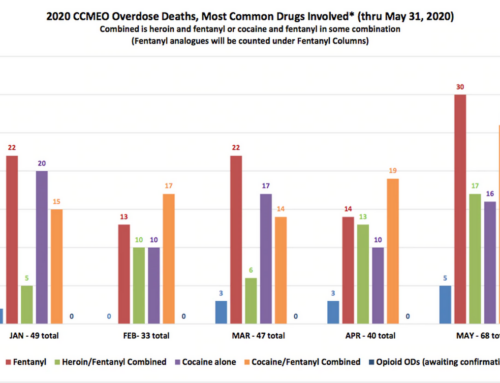 COLUMBUS, Ohio — Ohio doctors, dentists and other health professionals will be able to prescribe only up to seven days of painkillers for adults and five days for kids and teens under new rules announced Thursday.
COLUMBUS, Ohio — Ohio doctors, dentists and other health professionals will be able to prescribe only up to seven days of painkillers for adults and five days for kids and teens under new rules announced Thursday.
The limits apply to acute pain patients, with exceptions for cancer, hospice or medication-assisted addiction patients. Prescribers can override the limits if they provide a specific reason in the patient’s medical record.
State officials estimated 109 million fewer opiate doses would be administered under the new limits.
The acute pain prescribing limits is the latest step in the state’s effort to fight the opioid crisis. Ohio led the nation in opioid overdose deaths in 2014, and deaths have continued to rise with increased use of heroin and fentanyl.
Gov. John Kasich repeated his call for communities to step up and work on the problem.
“It’s a partnership — we’re spending the money, we’re busting the people, the limits are in, the doctor shopping, we’re shutting down the pill mills — all these things are in place. But no one should think this gets completely solved just by people at the Statehouse trying to do something,” Kasich said during a news conference.
Prescribers will also have to provide the diagnosis or condition requiring the opioids when reporting through the state’s controlled substances database, the Ohio Automated Rx Reporting System (OARRS).
The new rules will be enacted in the coming months by the Ohio State Medical Board, Board of Pharmacy, Dental Board and Board of Nursing, not through legislation, as allowed by a new law that takes effect next week.
Opioid prescriptions have been declining for years, the result of increased reporting through OARRS and guidelines advising physicians to seek alternatives to opioids.And most overdose deaths in 2015 came from heroin and fentanyl, cheaper and more potent alternatives to prescription opioids.
Between 2012 and 2016, the total number of opioid doses dispensed to Ohio patients declined by 20.4 percent — from a peak of 793 million pills to 631 million pills, according to the State Board of Pharmacy.
What do doctors think?
Dr. Amol Soin, president of the state medical board and a pain management doctor, said the limits are reasonable and will reduce the amounts of unused prescription drugs in circulation.
“It helps set patient expectations because I can point to something, the rule, and say looking at all the data and evidence out there, this seems to be where we need to be with these pain pills,” Soin said.
Soin said seven days is a good time to reassess pain management for an acute injury.
The Ohio State Medical Association, which represents thousands of physicians across the state, was pleased the rules give doctors flexibility to prescribe greater amounts of opioids depending on the situation. Spokesman Reggie Fields said properly documenting those situations won’t be a burden for physicians.
The state has issued guidelines for opioid prescriptions three times since 2011: for emergency rooms and acute care facilities in 2012, for chronic pain and pain management clinics in 2013 and for acute pain in 2016.
The rules announced Thursday give the acute pain guidelines the force of law.
How does this differ from the legislative plan?
Kasich’s announcement came the day after GOP lawmakers proposed prescription limits on general dentists and primary care physicians.
The legislative plan provides the same exemptions for certain patients, but differs in several ways:
- Opioid prescriptions would be limited to three-day supplies.
- Professionals could only exceed the limits if they have completed eight hours of training about opioids and addiction and either refer addiction patients to treatment or, for physicians, provide addiction treatment.
- Addiction treatment centers or physicians treating patients for addiction must offer naltrexone (sold under the brand name Vivitrol), which blocks opioids’ effects on the brain, as an option.
- State officials would have to make patient counseling and education available online.
The bills’ sponsors said Thursday they support the new prescribing rules.
“This is a very thoughtful approach that will get us to where we want to go,” Sen. Jay Hottinger, a Newark Republican, said.
Original article from www.cleveland.com





